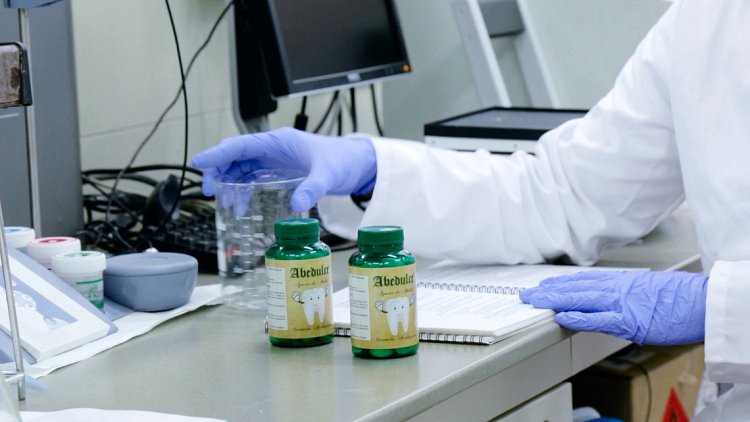UCAM study of the Abedulce tooth crystals
Significant difference between with and without dental crystals in the culture of Streptococcus mutans, indicating an effect made possible by the long duration of action of the xylitol by the crystals

The in vitro study conducted with the Abedulce tooth crystals made of pure xylitol by the University of Dentistry UCAM in Murcia has produced results confirming that the particular crystallization and composition of the crystal, without other sweeteners and additives that would compromise the bacteriostatic action of xylitol, allows a tremendously prolonged dissolution time in the mouth, which increases by far the bacteriostatic and bacteriocidal effect compared to any other form of xylitol ingestion.
There is a significant difference between the values obtained with and without dental crystals in the culture of Streptococcus mutans, indicating an effect made possible by the long duration of action of the xylitol by the crystals.
The study of the differences in pH by measuring the buffer effect over time showed significant differences.
These results are due to the special crystallization of the xylitol in the crystals, which are made of pure xylitol. The crystals are very stable, dissolve very slowly and therefore remain in the mouth for a long time. Due to the bacteriocidal effect of the crystals, existing bacteria are decimated and with its bacteriostatic effect, the dental crystals enable the mineralization of teeth and bones.
Xylitol, which is 100% crystalline, dissolves very slowly and therefore remains in contact with mucous membranes much longer than any other type of ingestion. And due to the thin outer layer of a chewing gum or the very fast dissolving xylitol in all other xylitol-containing oral hygiene products, which contain further additives and substances to stabilize the product, e.g. as powder, toothpaste or tablets, comparatively large amounts of xylitol have to be applied very often during the day to achieve a similar effect.
The positive effect of xylitol is maximized by the tooth crystals.
Its slow dissolution, its purity and its particular crystallization protect the tooth from the acids produced by bacterial fermentation and act as an effective protection against caries, gingivitis periodontitis and allow maximum mineralization of teeth and bones.
